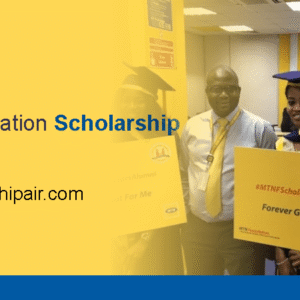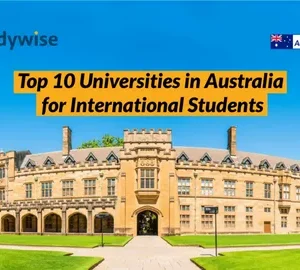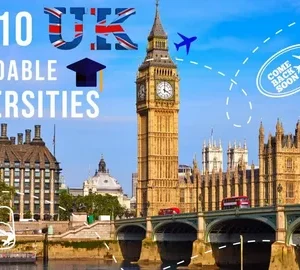Introduction
Why ChatGPT is a Game-Changer for Scholarship Hunters
Let’s be real: applying for scholarships is time-consuming, confusing, and sometimes discouraging. But here’s a game-changing tool that’s helping thousands of students save time and write stronger applications ChatGPT.
Whether you’re hunting for fully funded scholarships, crafting your personal statement, or rehearsing interview answers, ChatGPT can act like your personal assistant, coach, and cheerleader rolled into one.
The Importance of Crafting Powerful Prompts
The magic of ChatGPT lies in how you talk to it. If you ask vague questions, you’ll get vague answers. But with strong, tailored prompts, you can unlock gold.
This article is your ultimate toolkit—20 scholarship-specific prompts that will save you hours and drastically improve your chances of success.
How to Use This Guide
Each section has real, usable prompts you can copy and tweak. Try them in ChatGPT, or use similar AI tools like Claude or Google Gemini. Get ready to boost your scholarship game!
What Makes a ChatGPT Prompt Effective?
Clarity and Specificity
Avoid general questions like “How do I apply for scholarships?” Instead, try:
“List 5 full-ride scholarships in Germany for international students with deadlines after July 2025.”
Contextual Information
Give ChatGPT your background. For example:
“I’m a Nigerian student with a GPA of 3.8, studying biology. Suggest 10 scholarships in the UK I can apply for in 2025.”
Personalization and Targeting
Tailor each prompt to your goals—field of study, country, education level, or interests.
20 Powerful ChatGPT Prompts for Winning Scholarships
1. Discover Hidden Scholarships
“Give me a list of fully funded scholarships for African undergraduate students to study in Canada in 2025, including links and deadlines.”
2. Write a Killer Personal Statement
“Write a 500-word personal statement for a STEM scholarship, including leadership skills, financial need, and academic excellence.”
3. Brainstorm Unique Essay Topics
“Suggest 10 unique scholarship essay ideas for someone passionate about renewable energy.”
4. Rephrase My Existing Essay for Impact
“Here’s my essay draft. Improve clarity, grammar, and emotional tone.” (Then paste your text.)
5. Prepare for Scholarship Interviews
“Ask me 10 interview questions for a Chevening Scholarship and evaluate my answers.”
6. Draft a Winning Letter of Recommendation
“Write a sample letter of recommendation for a student applying for the Erasmus Mundus scholarship.”
7. Optimize My Resume for Scholarship Applications
“Format and rewrite this resume for a scholarship committee focused on academic excellence.” (Then paste resume.)
8. Create a Study Schedule to Apply for 10 Scholarships in 2 Months
“Build me a 60-day plan to find and apply for 10 top scholarships.”
9. Explore Study Destinations and Their Costs
“Compare the cost of studying in Germany vs Canada for international students in 2025, including living and tuition expenses.”
10. Write a Thank-You Email After an Interview
“Draft a polite, professional thank-you email to a scholarship interview panel.”
11. Build a Strong Scholarship Calendar
“Give me a Google Sheets template to track scholarship deadlines and application status.”
12. Generate Questions to Ask Scholarship Officers
“What smart questions can I ask a scholarship representative during an info session?”
13. Simulate a Real Interview Conversation
“Pretend you are the Erasmus scholarship interviewer. Ask me questions and critique my answers.”
14. Identify Common Mistakes in My Application
“What are the 5 biggest mistakes in this scholarship application essay?” (Paste essay)
15. Stay Motivated with Daily Affirmations
“Give me daily motivational quotes and affirmations for staying focused on winning a scholarship.”
16. Find Niche Scholarships
“List scholarships in Finland for international students pursuing AI or data science in 2025.”
17. Learn from Past Winners
“Give me 3 personal statement samples from students who won the Fulbright Scholarship.”
18. Generate Budget for My Scholarship Year
“Create a monthly budget breakdown for a student studying in Sweden on a €1,000/month allowance.”
19. Draft a Statement of Purpose for Graduate Study
“Write an SOP for a Master’s in Public Policy scholarship that shows leadership and future goals.”
20. Storytelling for Unique Applications
“Turn my journey of being the first in my family to attend college into a compelling scholarship essay.” (Then share your story)
How to Use These Prompts with ChatGPT
Free vs Paid ChatGPT
The free version works great for basic prompts, but ChatGPT Plus (GPT-4) gives better answers, supports longer texts, and offers better reasoning.
Best Times to Ask Prompts
-
When you’re stuck on writing
-
After reading the scholarship requirements
-
Before submitting your application
-
While preparing for interviews
Customizing for Maximum Results
Always include:
-
Your background (age, degree, nationality)
-
Scholarship name or type
-
Word count or format
-
Your career goals
Real Success Stories of Students Using ChatGPT
Scholarship Winner in Canada
“I used ChatGPT to reframe my essay and build a killer intro paragraph. Two weeks later, I got a call from the University of Alberta.”
Erasmus Mundus Graduate
“ChatGPT helped me compare courses, write motivation letters, and even rehearse for the final interview. Total game-changer.”
STEM Student in the U.S.
“I had no idea how to ask for recommendation letters. ChatGPT gave me the exact script I used to email my professor.”
Final Tips to Supercharge Your Scholarship Journey
Start Early, Apply Often
Don’t wait. Even if you’re not eligible this year, start practicing with mock applications.
Track Every Application
Use spreadsheets or apps like Notion or Trello to stay on top of deadlines.
Stay Authentic
AI helps you sound smart—but your truth is what makes you stand out.
Conclusion
Winning scholarships isn’t just about being smart—it’s about being strategic. And with tools like ChatGPT, you’ve got a digital partner who works 24/7 to help you shine.
Use these prompts wisely, stay consistent, and believe in your story. The scholarship you’re dreaming of? It’s totally within reach.
FAQs
1. Is using ChatGPT for scholarship applications allowed?
Yes, as long as you use it ethically—to brainstorm, improve grammar, or rehearse. Avoid copying generic answers word-for-word.
2. Can ChatGPT find real scholarship links?
ChatGPT can generate examples, but for real-time opportunities, use websites like:
3. How many scholarships should I apply for?
Aim for at least 10–15 high-quality applications each year. Diversify by country, type, and deadlines.
4. What’s the biggest mistake applicants make?
Generic essays. Always tailor your response to the specific scholarship’s goals.
5. Can I use ChatGPT for non-English scholarships?
Yes! You can ask it to write in French, German, Spanish, etc., or translate your application materials.







